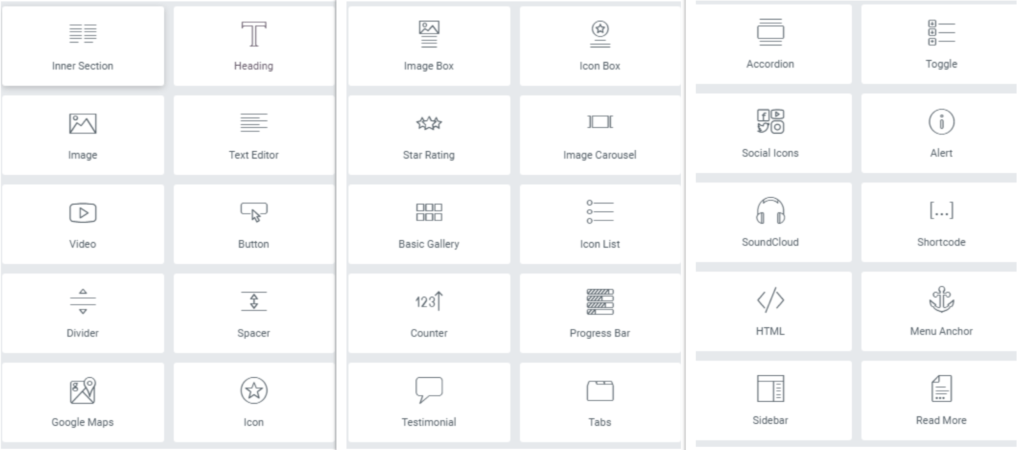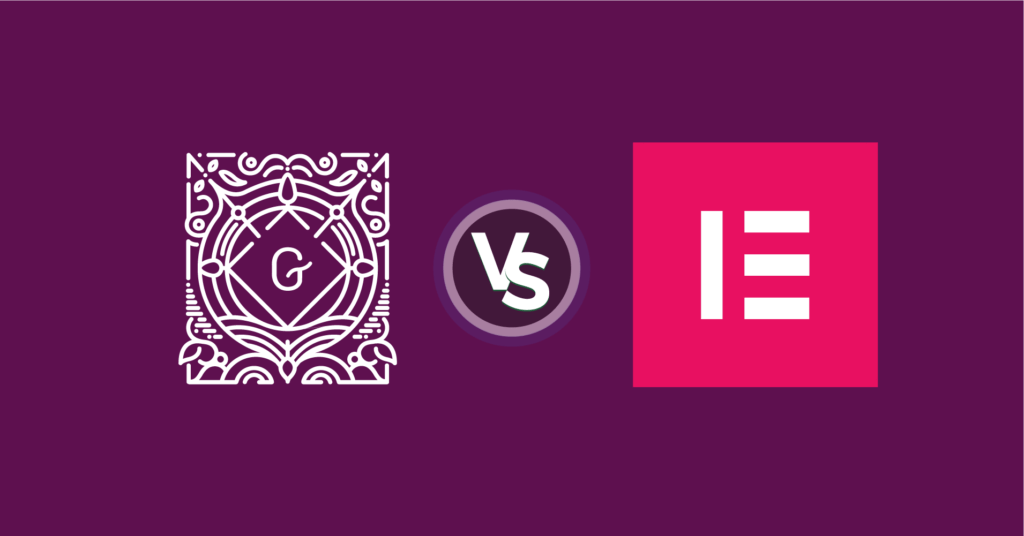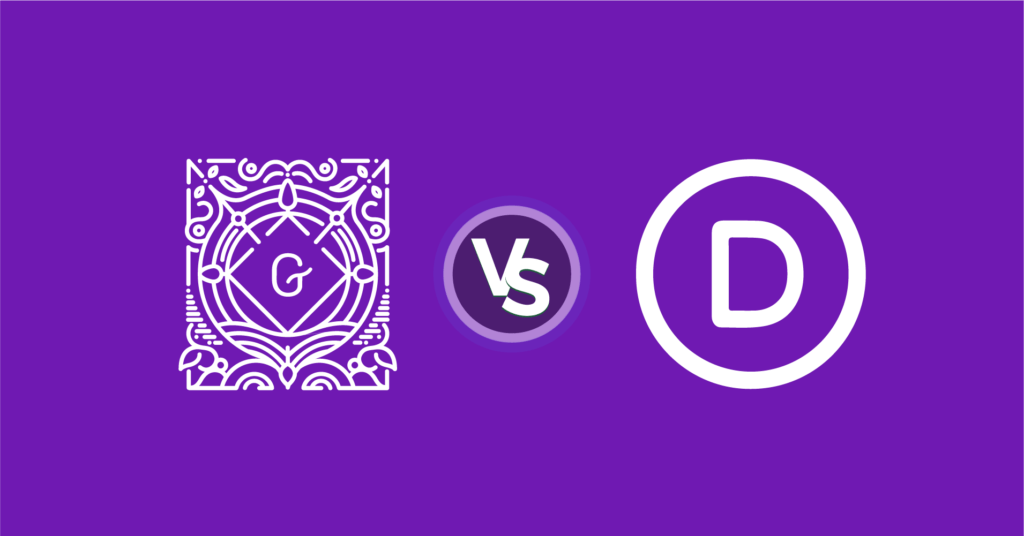Gutenberg vs Page Builders: Which One Should You Use?

Since the release of the new WordPress Gutenberg Block Editor, it has become a big point of interest for the entire WordPress community. As it gets stated that Gutenberg editor is going to be the future of WordPress website building, a question arises among the WordPress developers,
Is Gutenberg Block Editor going to replace the regular web Page Builders?
Considering the current professional service providing state of Gutenberg Block Editor and the Page Builders, there is no straightforward answer. Thus a Gutenberg vs Page Builders Comparison seems necessary.
Gutenberg block editor is nowhere near the service and features page builders offer. Neither is it trying to replace the page builders.
These two are two particular kinds of things trying to make their impact in the industry where a few of their features match.
However, Gutenberg is still under development. According to WordPress, it’s going to take until 2021 to complete the entire development of the Gutenberg block editor. We already know that WordPress authors have the vision to be a complete WordPress editor.
WordPress officials stated that after Gutenberg Phase 2, the users would be able to edit the website areas, which include sidebars, headers, footers, etc. Well, once those features are added, we may say that Gutenberg has stepped into the page builder category. As Phase 2 is still under development, we can only wait to see where it takes us.
Meanwhile, the page builders are also concerned about Gutenberg development. They must be preparing some extraordinary features to compete with Gutenberg. It’s business, and here the one who evolves fast grows faster.
Throughout this entire blog, we are going to discuss the facts that come into consideration while comparing WordPress Gutenberg block editor with the popular WordPress page builders in the market. Let’s find out who gets the focus light at the end in the Gutenberg vs Page Builders comparison.
So before we get into the details, go ahead and grab a cup of tea or coffee, in case you haven’t already!
What is the WordPress Gutenberg Block Editor?

Gutenberg is more than an editor. It’s also the foundation that’ll revolutionize customization and site-building in WordPress. – wordpress.org
WordPress officials have stated that the Gutenberg Block is the revolution WordPress is bringing in website building. As a part of that project, Gutenberg has been made the default WordPress editor in the WordPress version 5.0 after 13 months of its initial release. Well done, WordPress!
The Gutenberg Block Editor breaks everything inside a website page into small blocks. Yet now, all the contents on a page come in small blocks. Contents like images, texts, quotes, buttons, galleries, etc. everything gets a block for one where several blocks together create a page.
For example, if you want to add texts, add a text block, and add your texts there. Or maybe you want to add an image. No worries! Add another block and input your image there. That’s how the Gutenberg editor works.
According to WordPress, Gutenberg Editor is about to go through a total of 4 phase development. As the Gutenberg Block editor is going through its 2nd phase of development, it is difficult to predict the future. Hence we can discuss the possibilities and facts.
However, WordPress clearly stated that at the end of all 4 phases, users wouldn’t need to go inside the dashboard setting to build or edit a page. Everything necessary to create a complete page like Header, layouts, widgets will be available in blocks!
What are the Page Builders?

Website building wasn’t easier ever before the page builders came into the business. The sole purpose of the page builders is to relieve WordPress users from the stress of writing tons of codes. Page builders offer the most comfortable click and build procedure.
Say, you want to create your website, but you don’t have any skill of coding. So how do you make your website? It’s simple, get a page builder plugin, install it, and start setting up your website pieces one after one from the offered templates, styles, widgets, etc.
The page builders offer everything that is needed to create a full website. Starting on the interfaces to theme building, page designing, and plenty of widgets and templates to decorate the page in any way a user wishes.
If you dig deep, you get features like column customizing, typography, content positioning, color, background, borders, etc.
You can edit your theme and redecorate its look using the page builders.
Gutenberg vs Page Builders Similarities

When it comes to distinguishing the similarities of the Gutenberg block editor and the page builders, we get only a few points to discuss. That’s because the Gutenberg right now is more like the updated version of the previous WordPress classic editor.
Gutenberg and the page builders aren’t that similar. They have a few common parameters where they both fit in.
So before going to the duel of Gutenberg vs Page Builders, let’s just have a look at where they stand together.
1.Content Blocks
Gutenberg is a block editor where it offers every content like texts or images a separate block each. In the same manner, page builders have been providing similar blocks since the beginning. Though they have different names for them, they work just the same.
Elementor offers as Elements:

Divi Offers them as Modules:

Beaver Builder gives modules also.
2. Create Custom Layouts (Using Plugin)
Gutenberg offers blocks for all your content. Inside these blocks, you can create a customs layout using the Column block. It’s possible to add more blocks inside the Column block. Though the default Gutenberg doesn’t allow the users to resize the columns.
However, there are plenty of third-party plugins to resize the columns or make custom layouts for the Gutenberg block editor. Plugins like Atomic Blocks, Enhanced Blocks, CoBlocks, etc. can create a versatile number of custom layouts inside the Gutenberg editor.
Page builders are all about customizable layouts. They significantly offer the users full control over the customization in the layout section. One of the reasons for page builders becoming so popular is these fully customizable layouts.
3. Visual Editing
Page builders provide a cent percent control over the visual editing. There is nothing to worry about while using a page builder for visual editing. While using Gutenberg, the experience of visual editing is not really up to the mark. Yet, though limited, it offers options for visual editing.
The visual editing option Gutenberg offers is better than the classic editor and on the same path of the page builder. However, it’s quite far behind comparing the efficiency of the page builder. Gutenberg allows the themes developers to customize in the Gutenberg editor, which entirely creates a standard visual.
Gutenberg vs Page builders: Differences

1. Theme Compatibility
Gutenberg can’t take over a website theme. Moreover, it depends on the website themes. All the functionalities Gutenberg offer performs supporting the website theme. If you want to edit a portion of the website theme, you won’t be able to do that.
However, Gutenberg provides options to add some CSS customization to the blocks, which is very limited. Hence, after overall customization, the look is quite similar to the underlying philosophy of the theme.
Page Builders are full into the theme customization. If the theme is page builder supported, the page builder can take complete control over the theme, customize any way the user wants. Users can completely edit a theme and make an entirely new page layout.
2. Drag & Drop Functionality
When it’s about the Drag & Drop functionality, Gutenberg has got the economy version! You can reposition blocks by dragging and dropping, but you have to add the block in the first place from the block menu.
Also, no drag and drop while adding the blocks.
However, you can drag and drop the feature of the page builder in any way you want. No matter if you’re going to add an element from the menu or reposition a feature on your page. Page builders offer you full authority on this.
3. Style Options
Gutenberg comes with a minimal number of style options for the blocks. Also, these style options are not that broad and don’t offer versatile features. If you want more style options for the block, adding custom CSS becomes the last option for you.
On the other hand, Page builders offer full control over the styling. They can edit and customize anything on a page, additionally the entire page, too. You get to change the font color/icons, fonts, elements, background, gradient, shadows, and many more.
4. Frontend & Backend Editing
If I state very clearly, Page builders are front end editors. On the other hand, Gutenberg is a backend editor.
While working on a page builder, whatever you see and edit is your frontend. It looks the same as it will appear on your website. So, you don’t need a preview button or switch to another page to see how the edit is working for you.
On the other hand, Gutenberg requires you to click the preview button to see the actual sight of your website. The preview button saves your edits and creates a view of the edit you have done in the backend. Indeed, it’s time-consuming and involves more steps.
5. Blocks, Widgets, & Modules
In the Gutenberg editor, Blocks are everything. To add specific content, you have to add an individual block. Open the list of blocks from the menu and choose your block.
On the other hand, the page builders offer you widgets or modules. Following that, Elementor gives you a set of widgets, page builders like Beaver Builder, Divi Page Builder offer you a set of modules.
If you analyze in-depth, you’ll find these page builders offer you a versatile set of blocks, modules, or widgets. In contrast, the Gutenberg editor limits your creativity within only a few blocks. Also, different web themes offer custom-built widgets or modules for these popular page builders.
However, you can find plenty of third-party plugins that come with plenty of versatile Gutenberg Blocks. You can install those plugins to get an extensive experience of the WordPress Gutenberg editor.
6. Templates Library
Page Builders comes with a large number of versatile prebuilt templates for the users. Just pick a template from the library and start editing it.
On the other hand, Gutenberg Editor only offers blocks with no templates. Hence, you have to start building from scratch.
Elementor Page Builder comes with 150+ beautifully designed free, and premium Elementor templates cater to different niches requiring different kinds of websites. Similarly, the Beaver builder offers 300+ beautiful page templates, and the Divi Page Builder provides 800+ pre-made designs with 100+ full website packs.
Compared to the vast number of different templates offered by the page builders, the Gutenberg block editor stands no place anywhere near the Page Builders.
7. Content Creation
Gutenberg Block Editor is specially made for creating and managing contents in WordPress websites. There are more features yet to come. At this moment, the Gutenberg Block editor gives much breathing room to the content creators compared to the previous WordPress Classic Editor.
On the other hand, the page builders focus more on customizing the entire website theme and other visuals. Indeed, the page builders have a good number of content widgets and modules. Yet, Gutenberg plays a better role in content creation and content management.
What is The Elementor Page Builder?

Elementor is a third party WordPress page building plugin that works as a live frontend editor for WordPress websites. It’s capable of building and customizing visually complex page layouts, web pages, theme customization, and plenty of features.
If you are looking forward to creating high-level designs for your website, Elementor is the tool you need. With 30+ free widgets, a rich prebuilt template library, and plenty of features, also they provide you the ability to create beautiful and stunning web pages.
Gutenberg vs. The Elementor Page Builder

Comparing Gutenberg Block Editor and Elementor Page Builder is quite tricky. That’s because these are two different entities focused on their unique features and functionalities.
Well, there are features where they cross each other. But those features are very few in terms of comparison.
1. Blocks and Widgets
Gutenberg offers 25+ Blocks for the users. This editor provides essential and fundamental images, text, button, etc. blocks, and also a few advanced options like buttons and tables.
Whereas the Elelmentor page builders free version offers 30+ widgets, which are also known as the Elements for the users to use in their web page building.
2. Blog Creation:
Gutenberg Editors mainly focus on WordPress content management. The blocks like buttons, tables, quotes, stuff, etc. principally come very smoothly for the Gutenberg users.
Elementor has more focus on page design widgets with features like Layouts, Heading, Icon, Columns, etc.
3. Column Layouts
The Gutenberg Column Blocks allows users to choose from a few basic predefined column structures. If you are talking about a single column layout, Gutenberg performs quite well here.
On the other hand, the Elementor Inner Section, which was previously named as Column Widget, offers advanced column options for the users. Also, you get more control over the spacing and margins.
If you are to make complex layouts with multiple columns, Elementor is your tool.
4. Web Design:
When it comes to web designing, the Gutenberg Block Editor comes nowhere near the Elementor Page Builder.
That’s because the Elementor Page Builder offers widgets, advanced features like image carousels, maps, accordion tab, and more styling options for each widget and sections.
Elementor allows you to edit your page header, footer, sidebar, and offers a complete theme customization option in the pro version.
5. Lightweight and Speed
If you are looking for a lightweight editor for managing your basic content on your WordPress website, Gutenberg is the better option for you. Gutenberg is lightweight and fast to do basic WordPress CM.
On the other hand, if you are looking forward to going deep into your website design, Elementos is the right choice. Elementor is slightly more substantial than the Gutenberg editor. That’s because the Elementor Page Builder deals with a lot of features and functionalities.
6. Page Building
Well, we are talking about page building experience. Third-party Page Builders like Elementor are mainly made to overcome the difficulties of the Classic WordPress editor.
The WordPress authority also tried to solve this limitation issue with the new Gutenberg Block Editor. And they have partially solved the problem. However, at this moment, Elementor is superior to the Gutenberg Block Editor in every aspect when comparing page building abilities.
7. Usability
Gutenberg offers a clean and straightforward interface when you start creating a post with it. Adding the blocks is also simple, click on the Plus (+) icon to select a block from the block menu.
While working with multiple blocks, you can simply drag & drop them to reorder. Selecting a block on the editor opens its settings on the right sidebar.
What is The Divi Page Builder?

Divi Page Builder is a premium WordPress theme and a drag & drop page builder that comes with 40+ prebuilt modules to build pages and posts. Page building was never as easy as it is with Divi Page Builder.
Besides, Divi is a complete website building platform that genuinely performs better than the default WordPress editor. Also, it offers you the best visual support with a straightforward but super-efficient interface.
Gutenberg vs Divi Page Builder

Anyone talking about Divi Page Builder should be concerned about the features Divi offers and the way Divi works. Divi is phenomenal when it comes to visual, efficiency, and productivity.
Divi is unlike any other page builder because no other page builders offer 40+ Prebuilt layouts, 100+ full website designs, 800+ pre-made designs, and also complete control over everything.
1. Frontend & Backend Editing
WordPress Gutenberg is only capable of working as a backend editor. Features like live editing, frontend customization are currently unavailable at WordPress Gutenberg editor. Installing some third-party plugins allows a few partial customization options.
On the other hand, Divi has complete control on the frontend and the backend editing of a website. Users can use the frontend live visual editor to build and edit the pages of their website.
2. Prebuilt Resources & Library
When it comes to the prebuilt resources to help the users, Gutenberg provides almost zero resources to its users. A few built-in layouts for each block, and that’s it.
On the other hand, the Divi Page Builder offers 100+ pre-built websites, 40+ website elements, and more than 800 different pre-made designs for different sections.
3. Elements & Blocks
As WordPress Gutenberg is a block plugin, it performs pretty well in this part. Gutenberg provides 60+ default blocks, mainly to create and decorate the content on a WordPress website.
However, the Divi Page Builder also uses traditional drag and drop blocks. In numbers, Divi offers a lot more than the WordPress Gutenberg. Almost 900+ elements and demos. Besides, the Divi Page Builder blocks are more efficient and hold more customization opportunities over the entire website than the Gutenberg Blocks.
4. Purpose
Gutenberg block editor seems to be providing more features, particularly for content creation. If your website is content-focused, Gutenberg can serve you in a very efficient way.
But if the site deals with more than content, you will need more features, which leads to the Divi Page Builder. Divi can customize almost an entire website. Using the Divi Page Builder, what part of your website needs customization is all up to you.
5. Pricing
Gutenberg is entirely free to use. It comes as the default WordPress editor. Which means you don’t have to pay a single penny to use the Gutenberg at its fullest.
On the other hand, The Divi Page Builder doesn’t come free. It’s a premium page builder tool. You need to pay 89$ per year or pay 249$ for a lifetime to use the Divi Page Builder.
Which One Should You Use? Gutenberg or Page Builders?

As you have continued to this point, you already have a brief idea about the characteristics and functionalities of the Gutenberg block editor and also the WordPress page builders.
At this stage, I should repeat the fact that the WordPress Gutenberg block editor and the WordPress page builder aren’t the same types of tools, and neither were they created to serve a similar purpose. They have the versatility and also their signature functionality.
If you are a blogger or your business is deeply connected to content, I recommend you using the Gutenberg block editor. Maybe you could try some third party plugins or tools with Gutenberg to dig a bit deeper.
But if it’s not, you can go for the Elementor or The Beaver Builder or similar page-building tools. If your business or website is related to visual, you can grab the Divi Page Builder to create an extraordinary visual on your website,
For general users, If you are beginning with WordPress or trying to grow your business, Gutenberg is the best option for you. But if you are a professional and you want versatility, and up to the mark service, you can go for a Page Builder wearing a blindfold.
Good Read: Best 15 Gutenberg Blocks Plugins in 2020
